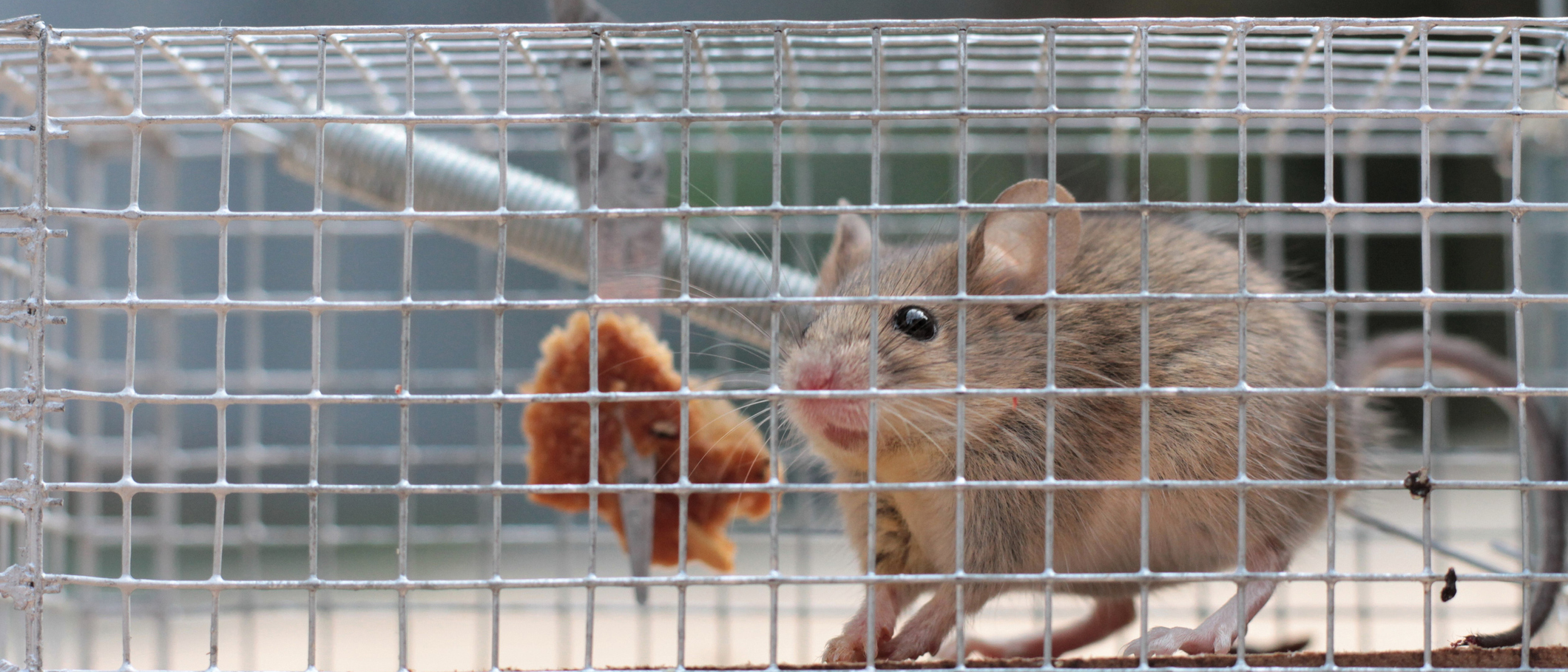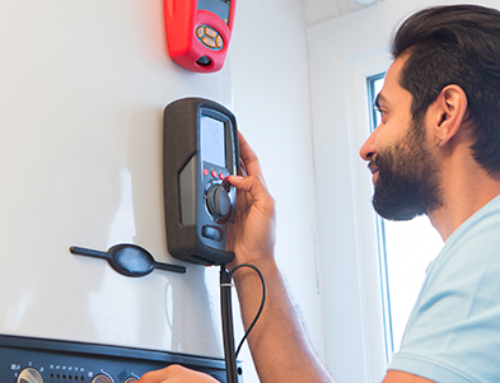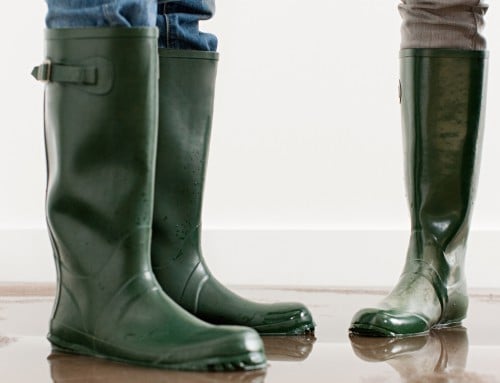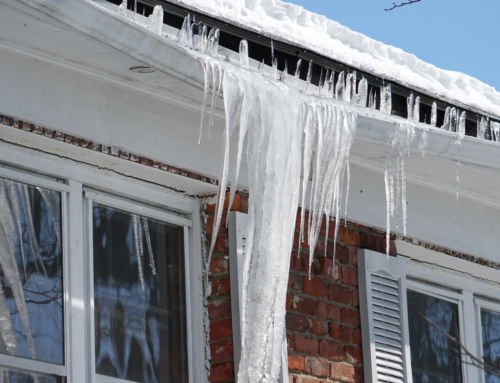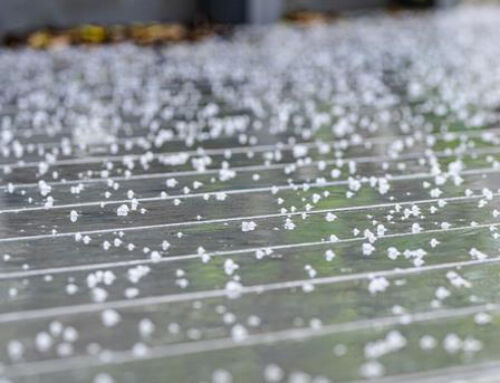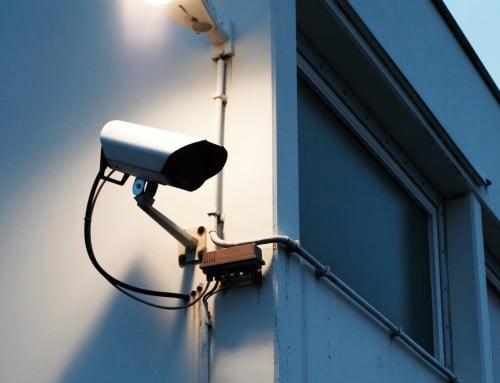Rodents can become a nuisance and cause serious damage for any business, in both rural and urban settings. Rats, house mice, field mice, and squirrels are considered pests as they can cause property damage and disrupt business operations.
In buildings, rodents can destroy walls and chew through electrical wiring, insulation, furnishing, products, and other materials. We’ve seen major battery-related fires caused by rodents chewing through the wiring of vehicles stored inside buildings without the battery being disconnected. They can also pose a problem outdoors, in yards, lots, waste areas, or other accessible locations.
Where do rodents build their nests?
Rodents look for warm and cozy locations to construct nests. Typically, they build nests in or around vehicles (cars, trucks, RVs, campers, etc.) and contractor equipment that is rarely used. It’s important to find and resolve the presence of rodents before they build nests. Once that occurs, they will only multiply.
Rodents generally construct their nests in the following locations:
- Inside of buildings (attics and crawl spaces)
- Inside of vehicles (engine compartments, headliners, gloveboxes, on or under vehicle seats, trunks, and spare tire compartments)
- Outside of vehicles (taillight and headlight access areas and enclosures)
- Within equipment (engine and tool compartments)
If buildings, vehicles, and equipment are left unattended and unoperated for long periods, there is a high chance of rodents finding their way in and nesting. As for what their nests are made with, they may utilize the following materials:
- Insulation found within building walls, vehicle parts, and equipment
- Ducting and air filtration components in heating and air conditioning systems
What signs may indicate a rodent infestation?
Common signs to be on the lookout for are chew marks, droppings, tracks, holes, grease marks, musky or rotting odours, and noises. If you notice any of these, it is likely that one of your workspaces contains a nest or at the bare minimum, a rodent was looking around for a place to stay. These sensory cues are often the first indications that damage has been done.
What’s the impact of a rodent infestation?
Rodent infestations can impact your business resulting in damages to your property, lost operational time (use of vehicles and equipment), and lost revenue (sale of vehicles and equipment). It is also generally very costly to repair damages due to rodent infestations. At the same time, it can also be hazardous to your health.
Key tips to help protect your business against rodent infestations:
- Implement a rodent control program – There are rodent control companies who can help you develop a program tailored to your needs based on your unique premises and the rodents identified in your geographical area. They can also provide ongoing inspections and monitoring to ensure the program is effective.
- Park and store vehicles – Store RVs, campers, trailers and equipment in yards or fenced areas where there is no tall grass or vegetation. Avoid storage in fields or wooded areas where rodents are commonly found.
- Disconnect your batteries – If you do park vehicles inside a building and there is evidence of nesting inside those vehicles, ensure you disconnect batteries before conducting a full investigation, as well as before any cleaning and removal of infestation. This can help eliminate the chance of battery-related fires.
- Seal up openings and holes – You may find these in windows, sunroofs, and doors within vehicles, as well as pathways leading to vehicles. If possible, restrict access entirely.
- Lay traps and remove food – If storing vehicles in a garage or warehouse, lay traps and remove food from the area to avoid scents that rodents are drawn to. When storing RVs, camper units, and trailers, remove barbeque units, as rodents are attracted to the odours from residue. Remove food, fat food packaging, pet food, and small scraps of food that may be on the floor of vehicles.
- Use essential oils or rodent repellent smells – Treat vehicles or equipment with essential oils or commercial products that emit rodent repellent smells. These products may need to be reapplied on a regular basis to maintain their effectiveness.
- Sprinkle cedar shaving, sawdust, or mulch – Do this in the areas that vehicles and equipment are kept. These materials contain phenols that emit a strong smell and repulse rodents.
- Capture devices – An ultrasonic device, for example, emits a high-pitched sound to repel rodents. These devices can cause confusion, convulsions, and ultimately, they have the ability to kill rodents.
- Regularly inspect your vehicles – Inspect the exterior and interior of vehicles on a regular basis, whether the vehicle is used often, or rarely. This helps prevent the colonization or infestation of a vehicle.
- Air out the vehicle – When starting a vehicle that has been idle for an extended period, air out the vehicle and inspect the air intakes and filters before starting the engine.
While rodent problems can be prevalent, luckily there are steps you can take to minimize infestations and to help prevent losses. By utilizing the tips above, you can help ensure your property doesn’t suffer costly damages.
Reliable business insurance can help you manage your risks
But despite your best efforts, something could still go wrong, which is where the right coverage comes into play. Visit our business insurance page to learn more, and ensure your business is adequately protected.
This blog is provided for information only and is not a substitute for professional advice. We make no representations or warranties regarding the accuracy or completeness of the information and will not be responsible for any loss arising out of reliance on the information.
